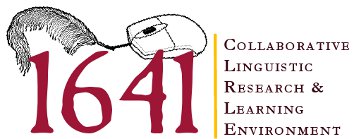Note of the papers of Lord Esmond suprized by Sir Thomas Esmond
[http://1641.tcd.ie/deposition.php?depID?=818195r166] accessed Monday 25th of September 2017 05:09 PM
Dublin Core
Zotero
1641 Deposition Item Type Metadata
fol. 195r
597
Papers of speciall use surprized by Sir Thomas Esmond at the death of the Lo: Esmond Mar: 25: 1645
Imprimis a Commission under hand and seale authorizing Lawrence Larcan to be Commaunde{r} <b> in chiefe of the ffort of Duncannon and to depose and appointe officers as he saw Convenient with seuerall blanke commissions signed and seal{ed} by the Lo: Inchiquin to that purpose
Item a ffeofement of the Lo: Esmonds estate made by his Lordship to the use of his last will <c> and testament
Item <d> Many letters betweene the said Lawrence Larcan and the Lo: Inchiquin and others who invited the said Larcan to adhere to the parliament much tending to the justification of the said Lo: Esmond in his honor
It: <e> a petition from the seamen and souldiers of the ffort of Duncannon Expressing the reasons why they were not able to fight worke or watch or by any meanes to subsist in defence of the said ffort any longer, and therefore requesting a parly to be beaten and quarter to be demaunded, otherwise they would demaund it upon the rampier, or to that effect.
It: <f> The originall articles of agreement betweene the Lo: Esmond and generall Preston under the said Prestons hand and seale upon deliuery of the said ffort to his Maiestyes Vse.
It: <g> all other letters betweene the state at Dublin and the said Lo: Esmond concerning the fort and the reliefe of it or any other matter of importance
It: <h> a letter adm from the viceadmirall Smyth advising the Lo: Esmond to deliuer the ffort to the Irish grounded upon the Councell (as he termed it) of our Lord and sauiour Jesus Christ agree with thine adversary while thou art in the way aleageing that he was not able to relieue his Lordship nor could he expect ayde for tenne or twelue dayes following
fol. 195v
fol. 196r
fol. 196v
A note of the papers surprized by
Sir Thomas Esmond


